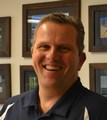MODULE D – DAY ONE – PARKSVILLE 2019 SYMPOSIUM: The over-arching theme for the concluding presentation by Nick Leone that provides the bridge to Day Two is “Back to the Future: Reconnect Hydrology and Ecology”

“Opportunities to support continued dialogue, engagement and advancements in innovation across professional disciplines and jurisdictions engaged in water management, conservation and sustainability is of vital importance and genuine benefit,” states Nick Leone. “Going forward we will need to think and act more strategically to account for uncertainty through acknowledging what we don’t know, and variability in what we do know; and develop effective partnerships that get the vision right and produce sound strategies,” states Nick Leone. “









